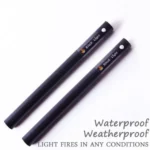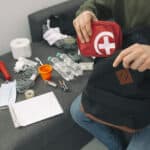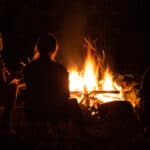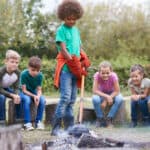Solo camping is a unique and empowering way to connect with nature and yourself. While the idea of camping alone may seem daunting, with the right preparation and mindset, it can be a safe and rewarding experience. This article will provide essential tips and tricks for solo campers, covering safety, gear, and making the most of your solo adventure.
Table of Contents
Benefits of Solo Camping
Solitude and self-reflection
Solo camping provides an opportunity to escape everyday life and practice mindfulness. It allows you to relax, reconnect with nature, and focus on your own thoughts and emotions. The solitude and peace of the outdoors can be incredibly rejuvenating and help you gain a fresh perspective on life.
Freedom and flexibility
When camping alone, you have the freedom to plan your trip according to your own preferences and schedule. You can choose your own meals, activities, and pace without having to coordinate with others. This flexibility allows you to tailor your camping experience to your individual needs and desires.
Building self-reliance and confidence
Solo camping helps you develop self-reliance and problem-solving skills. Overcoming challenges on your own can boost your confidence and sense of accomplishment. By relying on your own abilities and resourcefulness, you’ll discover just how capable you truly are.
Safety Tips for Solo Camping
Choose a familiar or well-established campsite
As a solo camping beginner, select a campsite close to home or one that you are familiar with. Well-established campsites offer amenities and a sense of security, making them a good choice for solo campers. If you’re new to backcountry camping, consider starting with a more developed campground before venturing into remote areas.
Always inform a friend or family member of your camping plans, including your destination, route, and expected return date. Establish a check-in schedule and stick to it, so your contact knows when to expect to hear from you. This precaution ensures that someone is aware of your whereabouts and can alert authorities if necessary.
Bring essential safety gear
Pack a well-stocked first-aid kit, including any necessary medications. Carry a reliable means of communication, such as a satellite phone or personal locator beacon, in case of emergencies. Learn basic first-aid and survival skills to be prepared for unexpected situations. Having the right safety gear and knowledge can provide peace of mind and help you handle any challenges that may arise.
Solo Camping Gear Checklist
Shelter and sleeping gear
Choose a tent or shelter suitable for solo use, considering factors like weight, ease of setup, and weather resistance. Invest in a quality sleeping bag and sleeping pad for comfort and insulation. Having a reliable and comfortable shelter is crucial for a good night’s sleep and protection from the elements.
Cooking and food storage
Pack lightweight and compact cooking gear, such as a single-burner stove and a small pot or pan. Bring non-perishable, easy-to-prepare food items and plenty of water. Use bear canisters or bear bags to store food securely and away from your campsite. Proper food storage is essential to avoid attracting wildlife and ensuring your safety.
Lighting and power
Bring a reliable headlamp or flashlight with extra batteries. Consider a portable power bank or solar charger to keep your devices charged. Having adequate lighting and power sources will help you navigate your campsite after dark and stay connected in case of emergencies.
Making the Most of Your Solo Camping Experience
Embrace solitude and self-reflection
Take advantage of the quiet time to journal, meditate, or simply enjoy the peace of nature. Use the opportunity to disconnect from technology and focus on the present moment. Solo camping is an excellent chance to practice mindfulness and gain a deeper understanding of yourself.
Engage in activities you enjoy
Plan activities that you find relaxing or fulfilling, such as hiking, reading, or photography. Challenge yourself to try new things and step outside your comfort zone. Solo camping allows you to pursue your interests without the distractions or compromises that often come with group activities.
Document your experience
Keep a written or video journal to capture your thoughts and experiences. Take photos or create artwork inspired by your surroundings. Documenting your solo camping trip can help you process your emotions, preserve memories, and share your adventure with others.
Conclusion
Solo camping is a wonderful way to challenge yourself, build self-reliance, and connect with nature on a deeper level. By prioritizing safety, packing the right gear, and embracing the experience, you can make the most of your solo camping adventure.
Remember to trust your instincts, stay within your comfort zone, and enjoy the solitude and beauty of the great outdoors. With these tips and tricks in mind, you’re ready to embark on a safe and rewarding solo camping journey.






















Leave a Reply